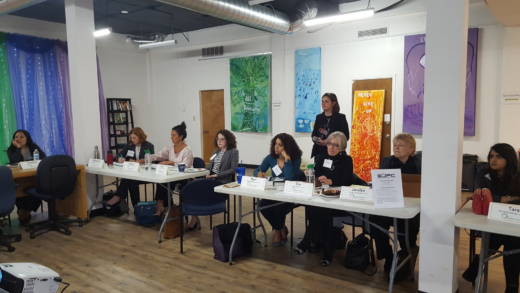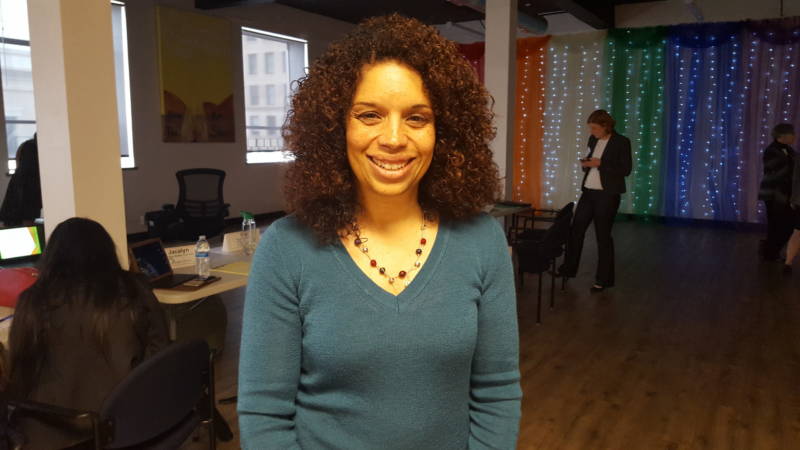Long a Republican stronghold, California’s Central Valley is often at odds with the state’s more liberal coastal communities. But Democrats believe that demographic changes and the reaction to Donald Trump’s election have created some opportunities for them in the valley.
On a recent Saturday morning a group of women gathered in a community room in downtown Stockton. They were a diverse group made up of different races, ages and experiences. But they had a couple of things in common -- they’re Democrats and they all plan on running for office in the near future.
That’s why they were taking part in a training session by Emerge California, which helps Democratic women seeking public office. Today’s lesson? Fundraising. Finding enough money is often a barrier to women candidates, and Emerge trainer Jamie Maniscalco wanted to make something clear.
“You have to remember that, when you are raising money for your own campaign, you’re not asking for personal gifts," she told the women. "They are investing in you because they know that you’re going to have issues and values and vision that they can align with and support.”
Emerge trainings have been happening for more than a decade, but this is the first year California’s program has expanded into the Central Valley. As more people from the Bay Area move in and more Latinos register to vote, the valley’s becoming friendlier to Democrats. Emerge California Executive Director Maimuna Syed says that, since the 2016 election of Donald Trump, applications have increased about 87 percent statewide.


